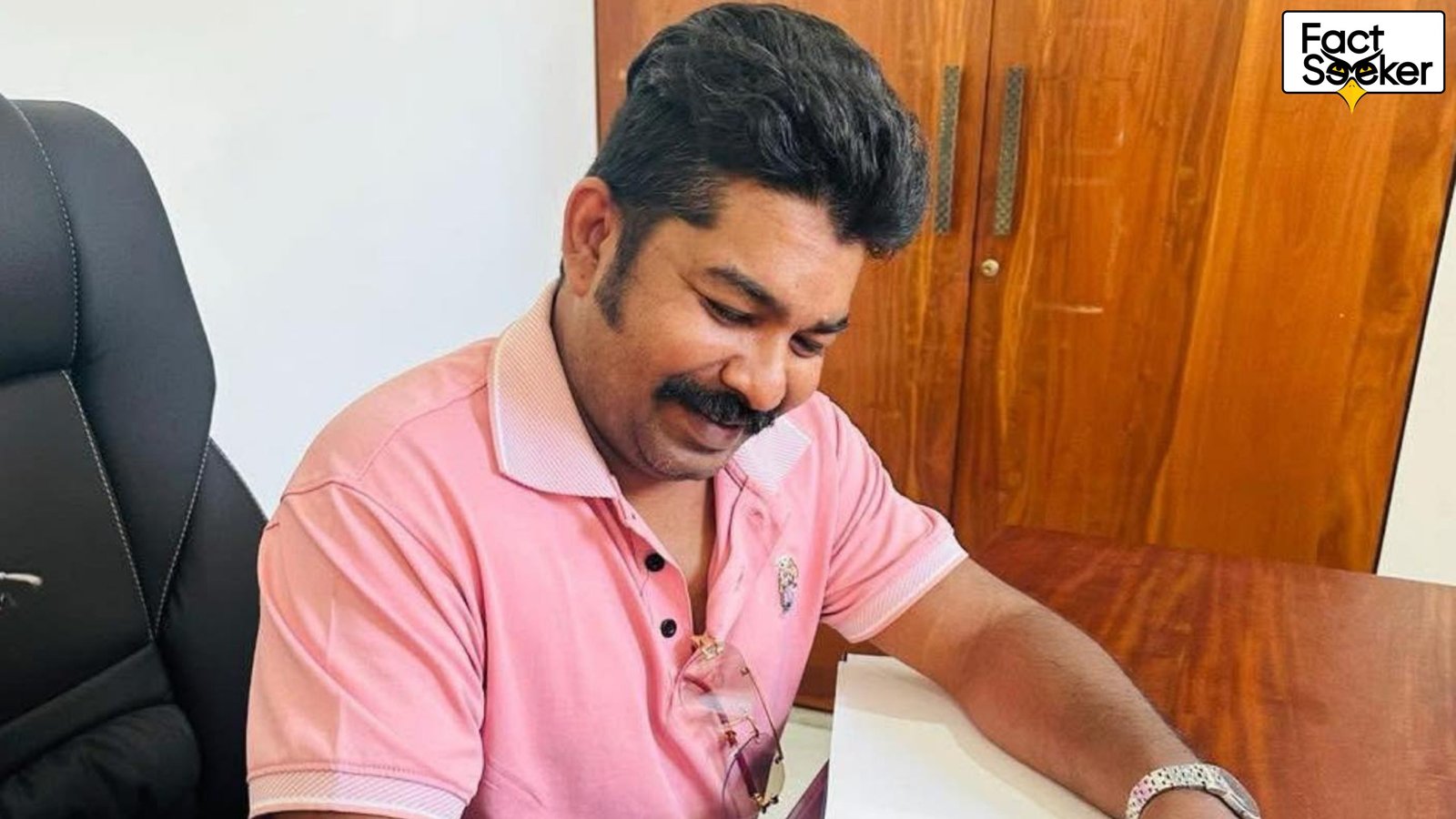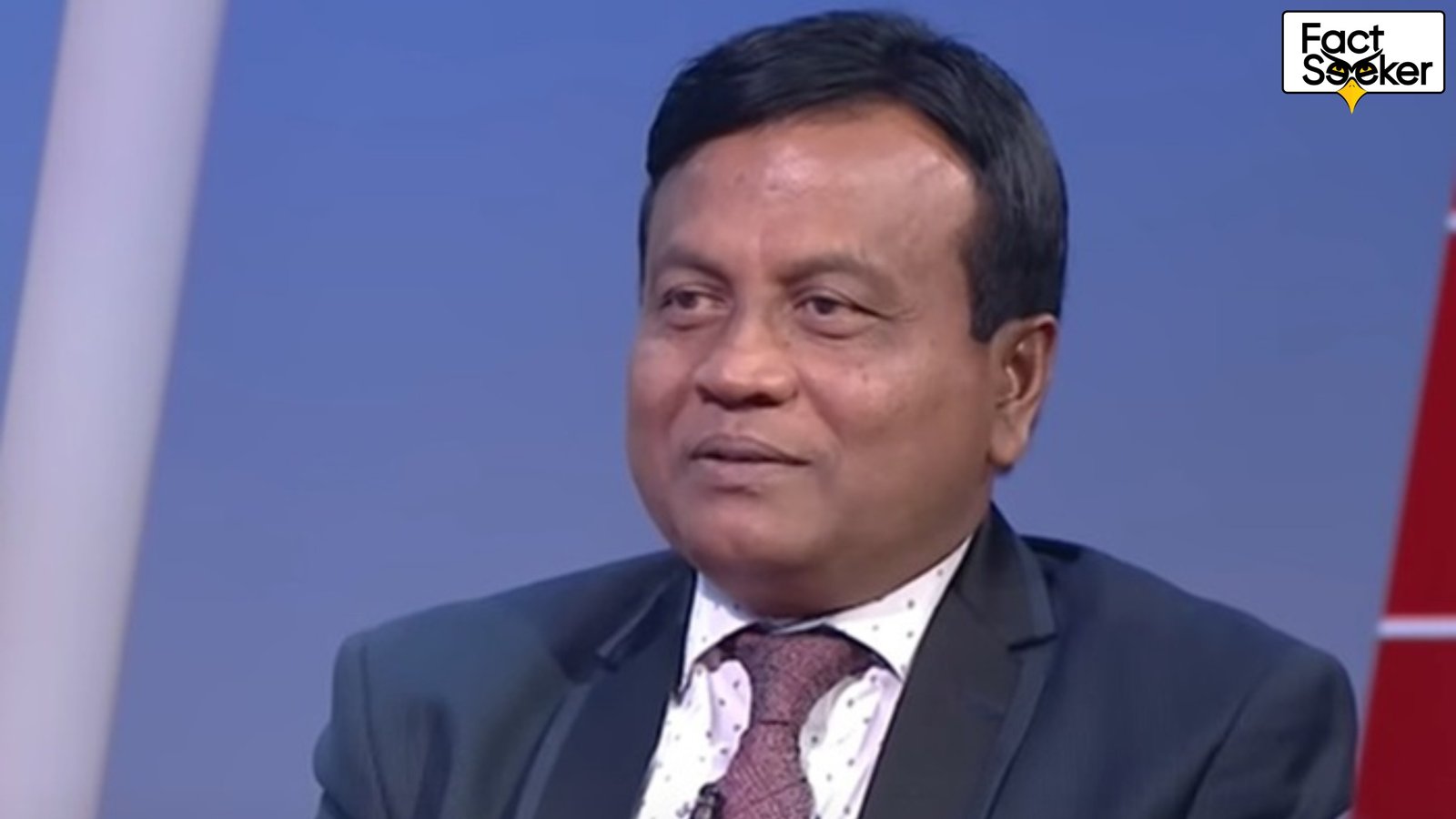Claims of the current President granting permission to celebrate Mahaviru Day are false

An article published on the Tamil news website Athirvu claiming that “President Anura has issued a media statement indicating that there will be no obstacles to the celebration of Mahaviru Day in the future” caught the attention of FactSeeker.
by Anonymous |
November 19, 2024
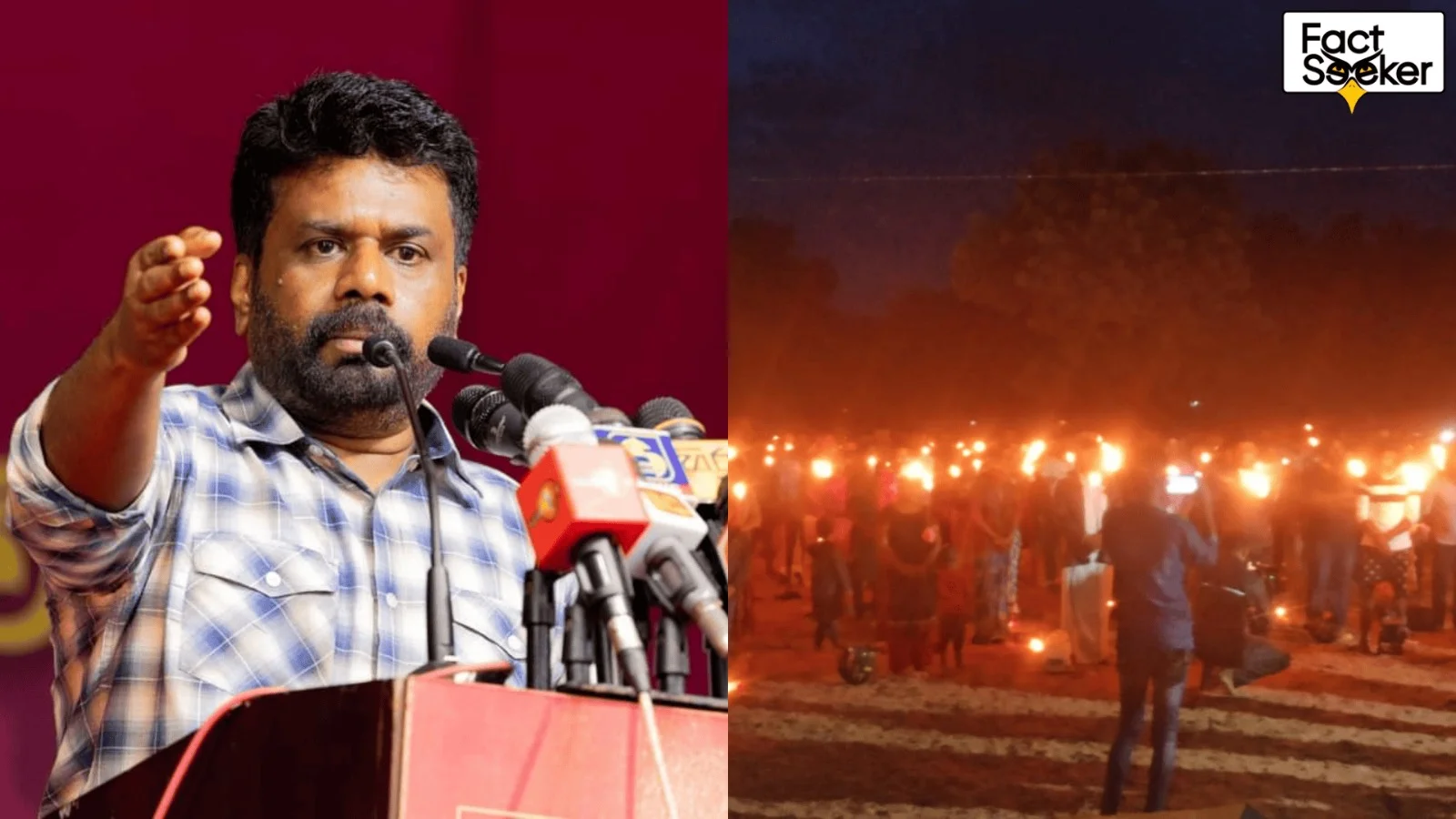
Accompanying this report is an image of an alleged letter written in Tamil, dated November 17, 2024, signed by the President Dissanayake.
The link to the article is attached here: https://www.athirvu.in/?p=15323
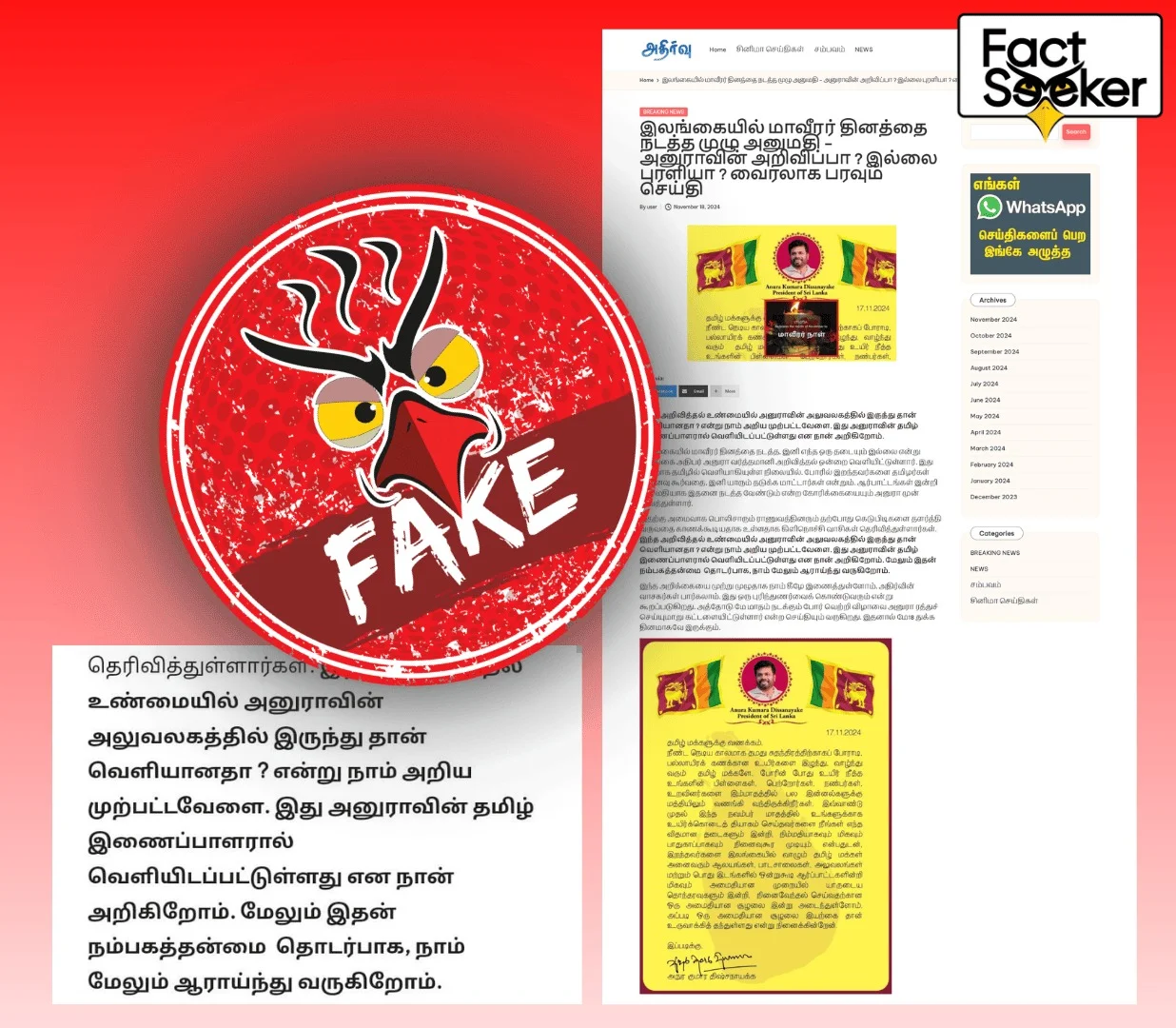
In the letter President Dissanayake allegedly states:
“Greetings to the Tamil people. They have fought long and hard for their freedom. The Tamil community is one that has endured the loss of thousands of lives, including those of your children and parents, during the war. Friends, despite the many challenges you face, you can honor the memories of the deceased this month. Furthermore, throughout November, you are encouraged to remember those who sacrificed their lives for you in a peaceful and secure manner. Today, all Tamils living in Sri Lanka have created a harmonious environment to gather at temples, schools, offices, and public spaces to commemorate those who have peacefully passed away.” (translated)
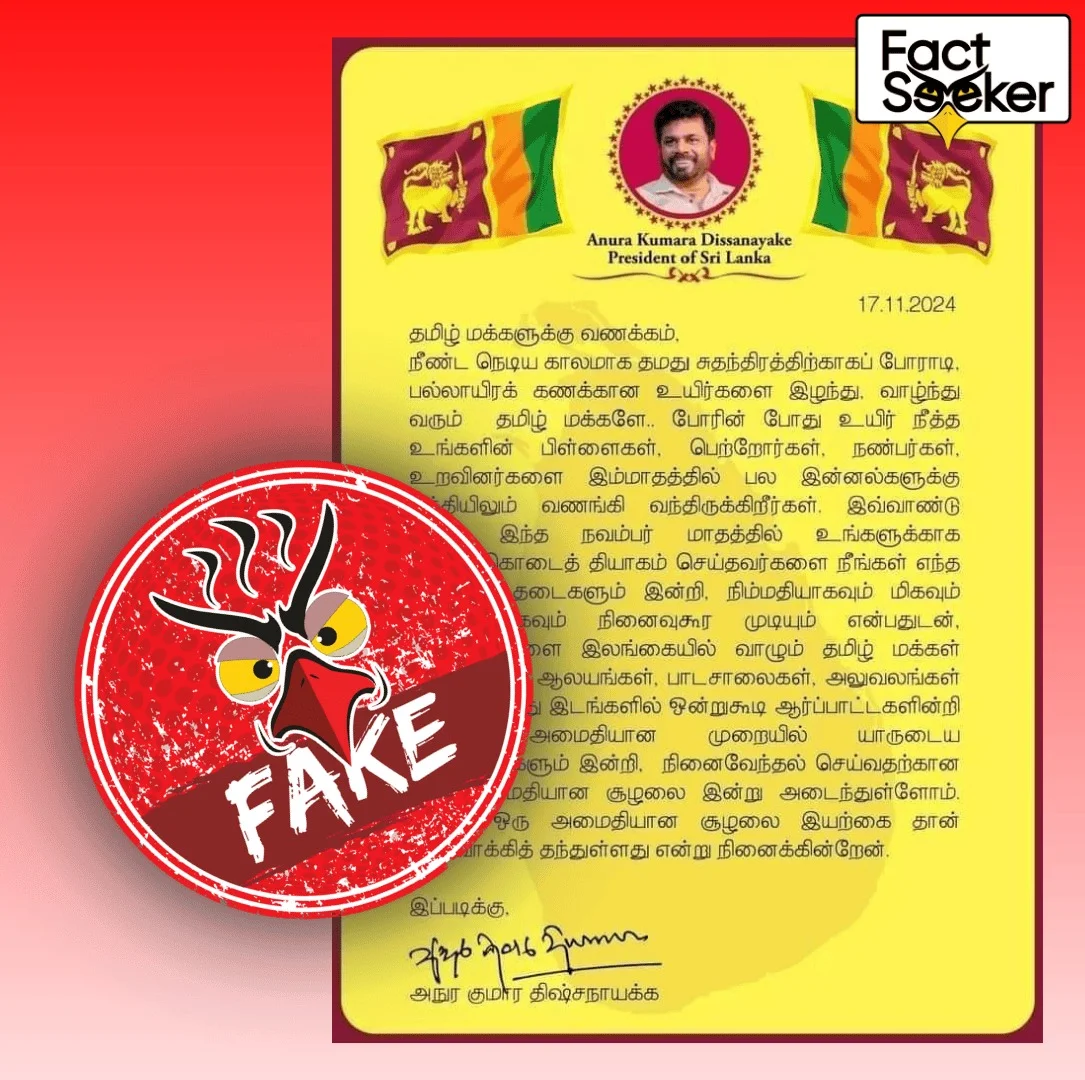
In response to inquiries regarding the legitimacy of this statement, the President’s media division told FactSeeker that that no such letter has been issued by President Dissanayake.
Mahaviru Day, annually observed on November 27, commemorates members of the LTTE who lost their lives during the war. Historically, previous governments have not granted permission for its public celebration. Despite this, the aforementioned publication suggests that the current President has granted such permission.
Accordingly, FactSeeker confirms that the media statement claiming that the current government has given permission for this observance is false, and that the report asserting President Dissanayake’s authorization for the celebration of Mahaviru Day, along with the purported letter bearing his signature, is an act of forgery.
